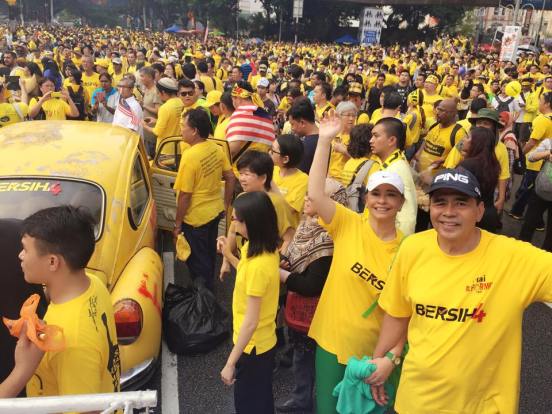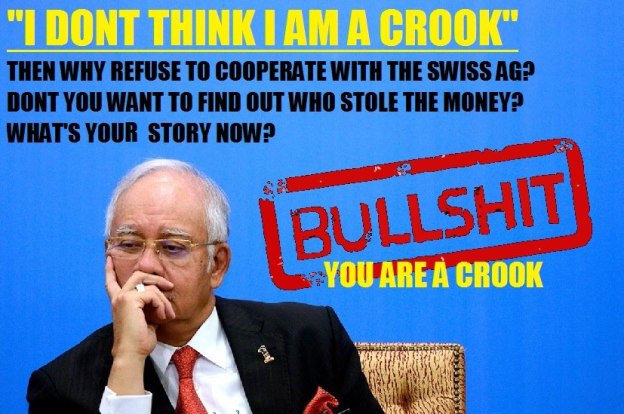August 3, 2017
Malaysia– Political Change or Status Quo
by Johan Saravannamuttu
https://aliran.com/newsletters/2017-newsletters/things-remain-things-change/
The nagging question is whether at a more fundamental level we are ready for – or can bring about – genuine change to the political landscape, writes Johan Saravanamuttu.
Dr. Johan Saravanamuttu
Contrary to the popular French adage, which many cite today in frustration, it could be that that the more things remain the same, the more they will change.
How else would societies evolve, and how can we explain social evolution? That said, more crucially, what sort of changes are critical political conjunctures in societies? Is Malaysia at such a crossroads?
As Aliran marks the 40th year since its formation, I’m struck by the immense change that social media has brought to the realm of political commentary, if not to our actual politics. We are inundated almost daily by analyses, opinion surveys and countless interpretations and punditry about our political situation.
Bersih –We are ready for political change are you, Fellow Malaysians?
Certainly from this perspective, there are signs of a vibrant civil society and that Malaysia has changed remarkably. We are arguably becoming a more mature political community, not short on intellectual interpretations of potential resolutions to our crises.
But the nagging question is whether at a more fundamental level we are ready for – or can bring about – genuine change to the political landscape. Malaysia’s Barisan Nasional (together with its predecessor, the Alliance) has the dubious distinction of being the longest serving ruling party in the world with an unbroken political dominance of 61 years.
This dominance was partially broken when in 2008, the BN’s two-thirds parliamentary majority threshold was breached. For many in the Opposition, this felt like a critical juncture had ocurred, one that would deliver a coup de grace to the BN in the next election.
In 2013 Pakatan Rakyat crossed the 50 per cent threshold of popular votes but this was inadequate to bring down the BN due to the peculiarities of Malaysia’s electoral system.
But at the state level of competition, a “turnover” system has emerged, according to the conditions suggested by political scientist Samuel P Huntington. Kelantan, Penang and Selangor have been under the control of non-BN coalition governments for over two rounds of elections, and this meets the Huntington criterion.
What would it take for a turnover system to emerge at the national level? This seems to be the 2.6bn ringgit question.
Readers can reflect on this question by perusing five important but differing takes by analysts on our tumultuous politics and its imperative for change. They provide the basis for addressing the kinds of dilemmas all thinking Malaysians must face today – particularly with the inclusion of former Umno leaders in the Opposition alliance – when they vote in GE14.
Liew Chin Tong celebrates what he considers to be the tipping point of historic change with the consolidation of Pakatan Harapan on 14 July 2017.
Rais Hussin says that the Mahathir-Anwar reconciliation has spooked Najib and Umno, suggesting that Harapan could capture some 125 seats in next general election.
James Chin analyses Mahathir as the crucial “saving” factor should an Opposition electoral victory be stymied by a last-ditch Najib counterpunch.
Kua Kia Soong rejects Mahathir heading the new Harapan coalition as a political regression seeing it as a betrayal of the Refomasi movement.
S Thayaparan agonises over staying on the course of regime change when such an endeavour calls for the choice of ‘the lesser of two evils’ as a logical and pragmatic one.
For me, there can be no doubt that a two-party system is the basis for increasing citizens’ choice and latitude for action. Progressives have invested too much in this project to abandon it now even if we have to bring Mahathir into the equation.
Najib’s malfeasance
My take on the most significant development, perhaps months away from the next general election, is Najib himself as the reason for change.
Since assuming the reins of power in 2009, Najib has manifested a level of egregious conduct that few could have anticipated. He has outdone and outfoxed even the wily Mahathir in the manner he has manipulated Umno and the BN and turned Mahathir into an Opposition politician no less!
As Finance Minister, Najib has taken almost complete control of government-linked investment companies or institutions (GLICs), and is seemingly able to use such cash cows at will.
Najib has taken Malaysia down the unprecedented road of kleptocracy through the creation of the sovereign fund 1Malaysia Development Berhad, which has run the nation into at least RM42bn of debt. This one factor alone has damaged irreparably Malaysia’s international reputation with five foreign governments having now carried out litigation over money laundering and other malfeasance involving 1MDB.
Most significantly, the US Department of Justice (DOJ) through a “Kleptopcracy Asset Recovery Initiative” seeks the recovery of US$3.5bn stolen from 1MDB from 2009 to 2015 and vested in assets found in the US.
The 1MDB debacle has led to criminal convictions abroad, while in Malaysia Najib has appointed an attorney general who has absolved him of all blame: not a single prosecution related to 1MDB has been carried out.
In Singapore, besides the closing down of two banks and financial penalties imposed on eight of them, five individuals have been convicted of criminal offences, including a 54-month jail term on Yeo Jiawei, an associate of Jho Low (The Business Times, 13 July 2017).
Another project launched by Najib, Felda Global Ventures (FGV), Malaysia’s flagship plantation corporation, is facing a RM3.5bn loss and many questions of impropriety. Over five years, its share price has slid precipitously and stands today at a mere RM1.66. The audit of 2014 showed that FGV was RM6bn in the red. Its most recent fracas saw the sacking of its chief executive officer, the removal of its chairman and the Malaysian Anti-Corruption Commission initiating investigations of malfeasance.
Felda is crucial for Najib to retain power because of the 54 parliamentary seats that are lodged in the Felda schemes, whose residents have become a ‘vote bank’ for Umno. One reason for Najib delaying the next general election would be to fix or control the fallout from the FGV debacle.
Waning fixed deposits
The latest Invoke opinion survey of 17,107 respondents, conducted from 5 June to 14 July, came up with some significant findings.
Support among Malays – which also included Sabah and Sarawak Bumiputera – was found to be almost equal for Harapan and BN, at 36 per cent and 35 per cent respectively. Among non-Malays, Chinese support for Harapan was at 53 per cent while Indian support stood at 42 per cent.
These survey results sound like bad news for Najib and BN and, if proven correct, could see the much anticipated first step to real change to the Malaysian political landscape.
Because of the shifting political support, Najib’s general election campaign is likely to take a more extremist turn in terms of money politics. He is likely to use money extensively to secure at least three sets of constituents: East Malaysians, Felda voters and fence-sitting Pas supporters.
Harapan leaders will also have to target these same constituents and make inroads into these difficult terrains if they want to pull off a victory in the polls.



There is a lot of smoke, but I am not sure we Malaysians are going to vote against Najib and his kleptos. The Malaysian heartland can be persuaded to stay with the status quo. Money talks; even rm500 BR1m per head is enough to make the rural folks happy with Najib and UMNO.–Din Merican
“We are ready for political change are you, Fellow Malaysians?”
The answer is NO. Change from a democratic to a theocratic? From one where all Malaysians are equal before the Constitution to one where the Malay Muslims are above the law? Change may not be for the better, it may be for the worse. PAS and its leaders are headstrong on implementing Hudud laws whereby the Muslims will suffer more than the non Muslim. PAS has reassured that Hudud will only be for the Muslims but take a look at Kelantan, everyone Muslims and Non Muslims must abide by the non provocative advertisement and all must close their shops or stall when call to prayers are sounded. Now they want to have caning done in public, whats next?
The Opposition are not any better. They are acting just like their former political parties. UMNO have their UMNO Youth and so does PKR, and others. Why not have a single class of membership. The funny thing is that the Youth Head is often in his late 30’s or early 40’s.
Do away with race and religious based political parties for a start. Have a truly Malaysian political party.
I noticed in the article that the Malay support for BN and Opposition only add up to 71%. This means a lot of Malays (and East Malaysian natives) are reluctant to declare whom they support.
Their votes will be a significant factor in GE14.
As one classic UMNO warlord puts it, even if the Malay rural and Hadi’s PAS supporter understand 1MDB, they way they see its “Its only money”. They do not understand the implication of the precedent set, the abuse of power and destroyed institutions, they do not understand the irreversible track Najib has put the nation on course to theocratic and corrupt state that will be castrotrophic failure.
Hell, Sarawak and Sabah, despite no hallucination with Islamic fervour, also cannot understand their certain doom, much less the rural Malays who naturally reluctant to believe.
Noticed that Chinese/Indian support for Harapan were 53/42 % respectively. But, these figures include Sabah and Sarawak.
They still look low to me. Disappointing really.
I wonder what the figures are like without E Malaysia.
Polls are only accurate if the people are willing to tell the truth.
Also, should be “stratified random sampling” to get an accurate overall picture of the entire population.
Chinese support at only 52% does not seem convincing to me.
More accurate to do another poll limited only to a representative sample of the Chinese-Malaysian population.